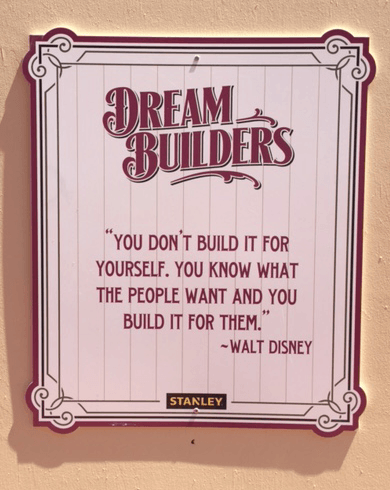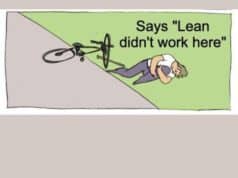For many families, making a trip to Walt Disney World is the quintessential family vacation. My wife and I started planning our Disney trip years ago. We knew we wanted to wait until our daughters were old enough to be able to 1) Remember the trip and 2) Not need to be carried. Although the latter didn't quite work as planned all the time, I'm certain the former will. With all the anticipation you'd imagine, we finally made the journey last month.
On June 14th, a two year old, Lane Graves, was attacked by an alligator while playing in shallow water at Disney's Grand Floridian Hotel. His body was found the next day – my family's first day at Disney.
While there, I heard many people talking about the incident. Opinions spanned the entire spectrum from blaming the parents to blaming Disney, with many settling in the middle and assigning some blame to both parties.
As a father, I can't imagine the hell that Matt, Luke's dad, is going through. My heart goes out to him and his family, who will never be the same after this. My greatest fear in life is having something even close to this happen to either of my daughters. I do everything I can to protect them, and I sometimes go overboard (as my wife will attest), but that's what we do as parents. We take care of our kids.
As I processed the incident, I began to think about it from a Lean perspective; specifically from the viewpoint of Safety. As a tenet of Lean, Safety is a must-have, non-negotiable item that trumps all else. Every organization, especially one as large and as influential as Disney, should treat it as such.. So, this begs the question: how could something like this happen at a place like Disney World?
One view I heard while on property was that the parents “should have known” about the danger. True, Florida is home to more than an estimated one million alligators, but is it really fair to say anyone should just know that that danger extends to Disney? That sounds an awful lot like “tribal knowledge” to me. People from all over the world visit Disney World. I heard French, Spanish, Portuguese and Russian all spoken by visitors (and those are just the languages I recognized). Is it fair to say that people from across the country (or from halfway around the globe) should “just be aware” of the danger?
I don't think this is fair. One aspect of awareness involves considering your surroundings. As a Manufacturing Engineer, this is something that I've relied on my whole career, as shop floors can be dangerous places. For instance, if I walk into a cell full of old Bridgeport mills, I'm much more situationally aware of dangers since these machines have no guards and no chip conveyers than I am if I walk into an air-conditioned, quiet Quality Control room that has a few microscopes and a CMM machine.
From that perspective, think of each Disney visitor as a new operator. They come from around the world, bringing with them different backgrounds and languages, to enjoy a vacation. Right away, their mindset is not matched to anticipate any kind of threat. To further this, Disney works hard to minimize guests' concerns during vacation. They manage your checked bags and deliver them right to your room for you. They deliver wristbands that can buy food, provide entry into parks and even unlock your hotel room door. On-property transportation is also all taken care of – all you really need to worry about once you arrive at Disney is when to wake up, when to eat, and when to go to bed. That's hardly a recipe for any kind of “situational alertness.”
Reportedly, there were no signs in the beach area alerting guests to the potential of alligators (although there were “No Swimming” signs). Situationally speaking, the company did not prepare its operators adequately. In fact, by including beach chairs and umbrellas on the beach to the lagoon where the attack happened, they almost seem to have been tempting fate rather than guarding against foreseeable risks.

Since the tragedy, it has come out that certain Disney employees were made aware of alligator close encounters, yet no action was taken. If proven true, this is inexcusable. One of the tenets of Lean is Kaizen; the betterment of processes by the people closest to the process. If Disney employees knew of a growing problem and did nothing, or reported it to management who did nothing, this is a grave failure in the system. Imagine if employees/customers in your shop, office, or hospital repeatedly voiced a safety concern, only to have no action taken and an injury or death occurring. Again – inexcusable. The system needs to be better.
Perhaps complacency played a part in this tragedy, as well. It had been a long time since the last reported alligator attack at Disneyworld. In 1986, then eight-year-old Paul Santamaria was attacked and bitten on the leg by a seven-foot long female alligator. Thankfully, Paul survived the attack, although the physical and mental scars linger to this day.
30 years is a long time, and Disney does have a procedure in place that monitors “nuisance” alligators and removes them from the property. So, after that much time (and roughly 600 million guests), would it not be reasonable to conclude that the preventive process was working, and therefore no further action was necessary? From a FMEA perspective, (given the low Occurrence rate) this would be true, so the data certainly suggests that the system in place was providing the benefit sought. If you had an issue on the shop floor 30 years ago that you'd taken action on and it hadn't occurred since, would you have spent any time thinking about it?
In a country where medical errors are estimated to be the third leading cause of death, right after heart disease and cancer, I'd say we have a lot of work to go do in taking better care of each other. At the end of the day, Lean isn't about getting more product out the door or more money into the company bank account. Yes, those things are important, but if people are getting hurt or are put in harm's way, then our focus needs to shift. Everything else is secondary.
Hopefully, the ensuing conversations at Disney will lead to positive changes being made, and prevent something like this from ever happening again.
Please scroll down (or click) to post a comment. Connect with me on LinkedIn.
Let’s work together to build a culture of continuous improvement and psychological safety. If you're a leader looking to create lasting change—not just projects—I help organizations:
- Engage people at all levels in sustainable improvement
- Shift from fear of mistakes to learning from them
- Apply Lean thinking in practical, people-centered ways
Interested in coaching or a keynote talk? Let’s start a conversation.









![When Was the Last Time a Leader Around You Admitted They Were Wrong? [Poll]](https://www.leanblog.org/wp-content/uploads/2025/07/Lean-Blog-Post-Cover-Image-2025-07-01T212509.843-100x75.jpg)